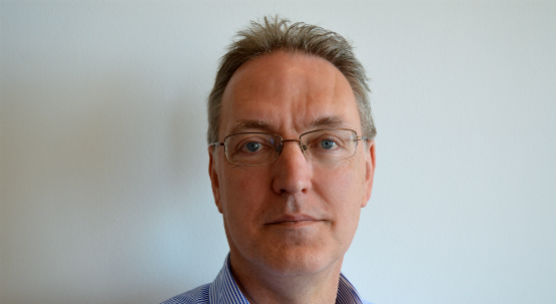Wellcome backs Dundee and GSK in neglected diseases drug quest
Published On Thu 27 Apr 2017 by Roddy Isles

The University of Dundee has been awarded £7.9 million by the Wellcome Trust for a joint project with GSK (GlaxoSmithKline) to boost efforts to find new drugs to treat some of the world’s most devastating parasitic diseases - visceral and cutaneous leishmaniasis, and Chagas’ disease.
These neglected diseases cause substantial suffering and an estimated 60,000 deaths annually world-wide.
The funding will enable the established Dundee/GSK team to continue their work to develop novel drugs to treat these diseases over the next five years. It follows the announcement of £13.6 million from Wellcome in December 2016 to establish the Wellcome Centre for Anti-Infectives Research at Dundee to tackle some of the world’s most devastating diseases.
Professor Paul Wyatt, Director of the Wellcome Centre for Anti-Infectives Research at the University, said, “The development of effective and safe drugs for leishmaniasis and Chagas’ disease will save many lives and improve the quality of life and economies within the developing world.
“The continuing unmet medical need is caused by the current therapies being not fit for purpose, recent clinical trials failures, sparse drug discovery pipelines across the world and there is general agreement that treatment with a combination of drugs is required for these diseases.
“In partnership with GSK we have established the broad range of expertise required to discover these much-needed drugs. The team combines world renowned parasitology, extensive experience developing drug molecules that can kill the parasites, and the substantial expertise and infrastructure required to develop drug candidates suitable for clinical trials.
“This funding from Wellcome is a vital boost to us achieving our five-year goal of producing three new drug candidates suitable for clinical trials in leishmaniasis and Chagas’ disease. We are already making very strong progress in finding possible drugs to treat visceral leishmaniasis, with two candidates funded under a previous Wellcome award currently in the pre-clinical stage of testing which we hope will prove successful.”
Steve Caddick, Wellcome’s Director of Innovation said, “Neglected tropical diseases have a devastating impact on more than one billion people worldwide - many of whom are living in extreme poverty. Wellcome is committed to working with partners to develop new treatments and we are delighted to announce support for the dedicated team of drug discovery experts at Dundee.”
Dr Jose Fiandor, Director of GSK’s Kinetoplastids Discovery Performance Unit, said, “GSK is committed to discovery of new medicines for the treatment of these devastating diseases. The collaboration with the University of Dundee and this funding from Wellcome are vital boosts towards the achievement of our five-year goal of producing new preclinical candidates for leishmaniasis and/or Chagas’ disease.”
These investments build on the world-leading work at the Drug Discovery Unit at Dundee’s School of Life Sciences to find new drugs to treat major diseases such as malaria, tuberculosis and leishmaniasis.
Last year researchers in the Drug Discovery Unit announced the discovery of a new antimalarial with the potential to treat malaria patients in a single dose. It is now in clinical development.
Leishmaniasis is caused by the protozoan Leishmania parasites which are transmitted by the bite of infected female phlebotomine sandflies. The disease affects some of the poorest people on earth, and is associated with malnutrition, population displacement, poor housing, a weak immune system and lack of financial resources. According to The World Health Organisation, an estimated 900,000 to 1.3 million new cases and 20,000 to 30,000 deaths occur annually.
Chagas’ disease is found mainly in endemic areas of 21 Latin American countries, where it is mostly transmitted to humans by contact with faeces or urine of triatomine bugs, often known as 'kissing bugs'. WHO estimates around 6 million to 7 million people world-wide are estimated to be infected with Trypansosoma cruzi, the parasite that causes Chagas’ disease.
Notes to editors
The University of Dundee is one of the world’s top 200 universities and in 2016 was named Scottish University of the Year for the second consecutive year (Sunday Times Good University Guide). Dundee is internationally recognised for the quality of its teaching and research and has a core mission to transform lives across society.
Both Times Higher Education and QS World University Rankings have ranked Dundee best in the UK and one of the top 20 worldwide among universities under 50 years old. Our students also rate us very highly on student satisfaction – we are one of the UK’s top ten in the National Student Survey 2016, and first for personal development of students.
Dundee is the top ranked University in the UK for biological sciences, according to the 2014 Research Excellence Framework, the major assessment of research quality.
See www.dundee.ac.uk for further details.
GSK – one of the world’s leading research-based pharmaceutical and healthcare companies – is committed to improving the quality of human life by enabling people to do more, feel better and live longer. For further information please visit www.gsk.com/about-us
About Wellcome
Wellcome exists to improve health for everyone by helping great ideas to thrive. We’re a global charitable foundation, both politically and financially independent. We support scientists and researchers, take on big problems, fuel imaginations and spark debate.
For media enquiries contact:
Roddy Isles
Head of Corporate Communications
University of Dundee
Nethergate, Dundee, DD1 4HN
Tel: +44 (0)1382 384910
Mobile: 07800 581902
Email: r.isles@dundee.ac.uk